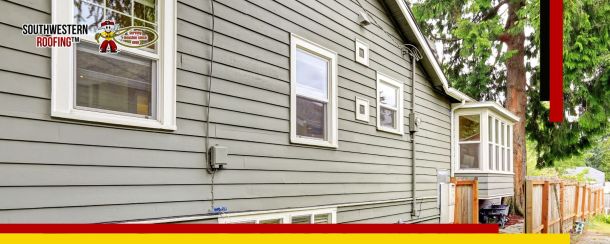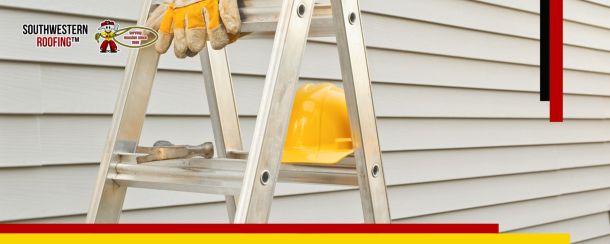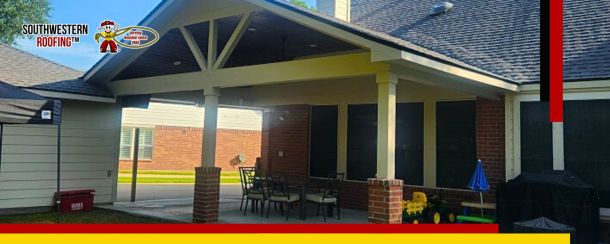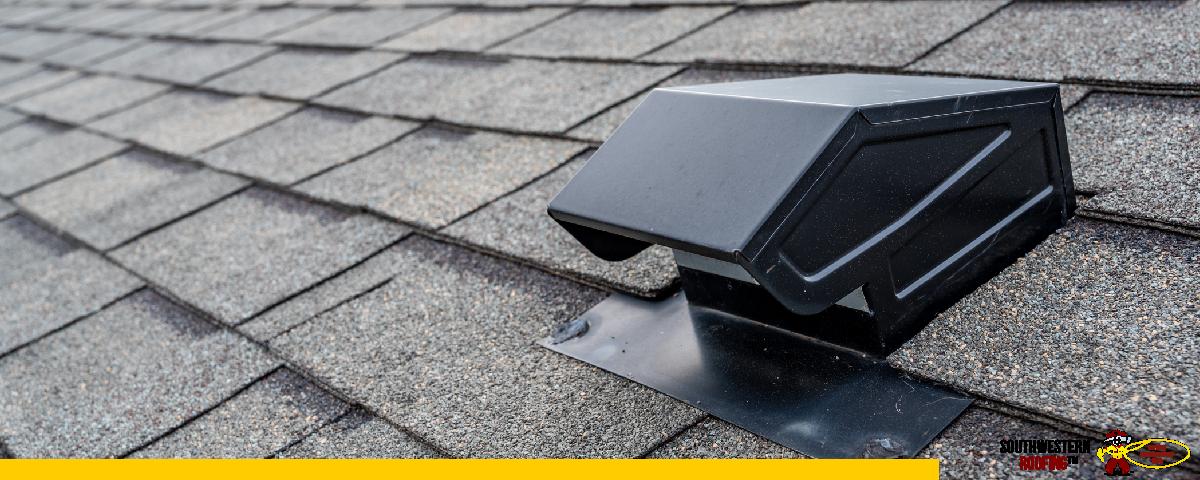
5 Signs of Poor Ventilation in a House
Southwestern Roofing in Houston
Do you know the warning signs of poor ventilation in a house and attic? Proper ventilation is important in many ways and one of the first big things to know is that it can prolong the life of your roof system. It can also help lower your attic temperature and thereby reduce HVAC wear and tear, which may help lower utility bills and the likelihood of costly repairs. And last, but definitely not least, attic ventilation can help reduce the risk of mold, which can protect the health of your family. All-in-all, attic ventilation offers a long-term return on investment as well as potential preventative health benefits.
What Happens to a Home That's Poorly Ventilated?
Poor attic ventilation negatively impacts your home and can ultimately cost you money. But what makes for a good ventilation system? Ideally, a well-balanced roof ventilation system will efficiently draw cool exterior air into the attic through intake vents and push hot interior air out through exhaust vents. This helps maintain your attic's temperature so that it's similar to the ambient outdoor temperature. When an attic doesn't have proper ventilation, or the ventilation system is blocked by paint, debris, or insulation, hot air gets trapped in your attic's highest points.
Trapped hot air leads to trouble all year round, including roof ice dams in winter and overworked HVAC systems in summer. Proper ventilation helps prevent home repairs and protects your roof investment. That's why it's so important to recognize the warning signs.
How Do You Know If You Have Poor Attic Ventilation?
1. Excessive Heat in the Attic
A hot attic may feel cozy, but it's one of the warning signs of poor ventilation in a house. Perhaps counterintuitively, your ideal winter attic temperature is similar to ambient outdoor temperatures. With poor ventilation in house, the hot air concentrated at your attic's highest points stays trapped. This, in turn, can lead to uneven roof temperatures (ice dams), an overtaxed HVAC (higher energy bills), and other costly headaches.
An indoor digital wall thermometer is a good way to help determine if your attic temperatures are too high.
2. Visible Moisture on Plywood
Wet wood in your attic is not a good sign. When warm, moist air from your home is trapped against your attic ceiling, condensation can occur. Any sign of visible moisture on plywood is a red flag.
Look for beaded water, condensation on hard surfaces, water stains, rusted nails, or rust stains around nail heads. It's important to address visible moisture quickly because trapped, warm, and wet air is a breeding ground for mold and mildew.
3. Mold or Mildew
If left untreated, mold and mildew can negatively impact you and your family's respiratory health, and deteriorate plywood, drywall, and other building materials.
Discolored patches, including white, orange, pink, green-black, gray, or black colors, can be indicators of mold. An active leak or damp area is a possible indicator that mold or mildew is also present. A musty or unpleasant damp smell is another sign. If you're concerned about mold or mildew in your attic, contact a professional.
4. Cracked or Curling Shingles
Poor ventilation can damage shingles by causing extreme roof temperatures, water damage to roof decking, and more. That's why it's important to be alert to the state of your roof's exterior. A regular roof inspection (performed safely from the ground with binoculars) can help you keep tabs on the situation. Warning signs of shingle damage caused by poor ventilation can include blistering on the shingles, granule loss, and curled, cracked, or brittle shingles. If you notice these warning signs, contact a certified roofing contractor.
5. Ice Dams
Icicles around your roof's perimeter may look magical, but don't be deceived. They can be a sign of ice dams caused by poor attic ventilation.
The excess warm air that results from poor ventilation gets trapped within the steeper parts of your roof. This can then melt the snow on the roof exterior above it. The melted snow then drips down and refreezes on lower, cooler areas. This freeze-thaw cycle can create built-up ice dams around the base of your roof that just get larger over time.
When ice dams are not removed, the built-up ice and water can infiltrate your roofing system, leading to shingle damage, roof leaks, and even structural home damage.
What Are the Health Problems Caused by Poor Ventilation?
As mentioned, property damage isn't the only negative consequence of improper attic ventilation. Changes in your family's health can also, unfortunately, be a warning sign. In fact, mold in the home can cause "sore throats, stuffy noses, coughing or wheezing, burning eyes, or skin rash," according to the Centers for Disease Control and Prevention. Asthma and allergies can be triggered by mold and immunocompromised folks are at a higher risk for lung infection.
The right attic ventilation can hopefully save you money on home repairs and medical care, while helping maintain the health of your family and home. Ready to get started on your attic ventilation project today? Contact with Southwestern Roofing professional certified
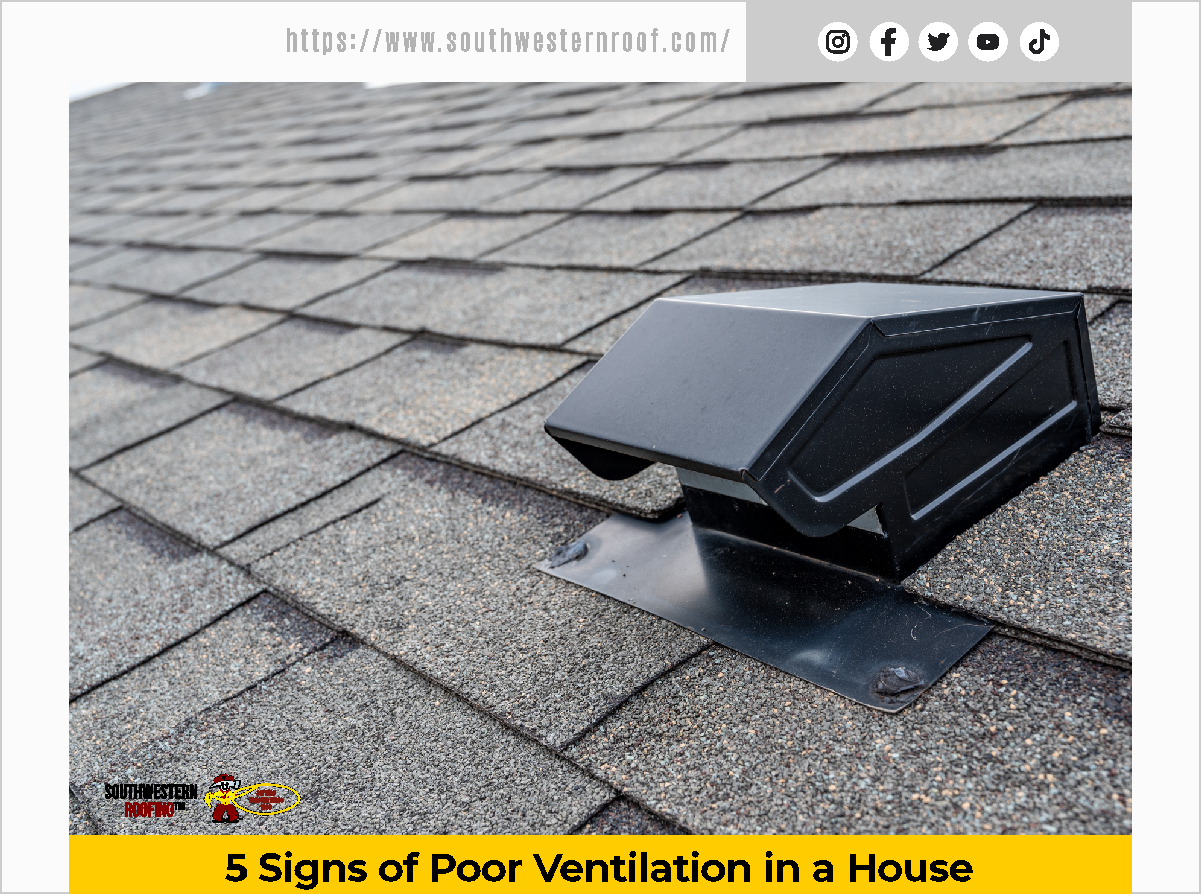
Source: GAF
Southwestern Roofing: We had our humble beginnings, but our goals have always been the same: To offer quality workmanship at a fair and reasonable price in addition to always treating each of you with honesty, integrity, and respect. Meeting with you, sharing ideas, and helping you achieve that goal has been a welcomed privilege.
Southwestern Roofing in Houston
Southwestern Roofing in Houston, Roofing Company in Houston, Roof Replacements in Houston, Roof Installations in Houston, Roof Repairs in Houston, Routine Roof Maintenance in Houston, Roof Inspections in Houston, Window Replacements in Houston, Patio Installations in Houston, Siding Replacements in Houston, Fence Replacements in Houston, Remodeling in Houston, Exterior Painting in Houston, Room Additions in Houston, Deck Installations in Houston, Gutter Installations in Houston, Exterior Repairs in Houston, Fence Installation in Houston, Free Roof Inspection in Houston, Free Residential Roof Inspection in Houston
